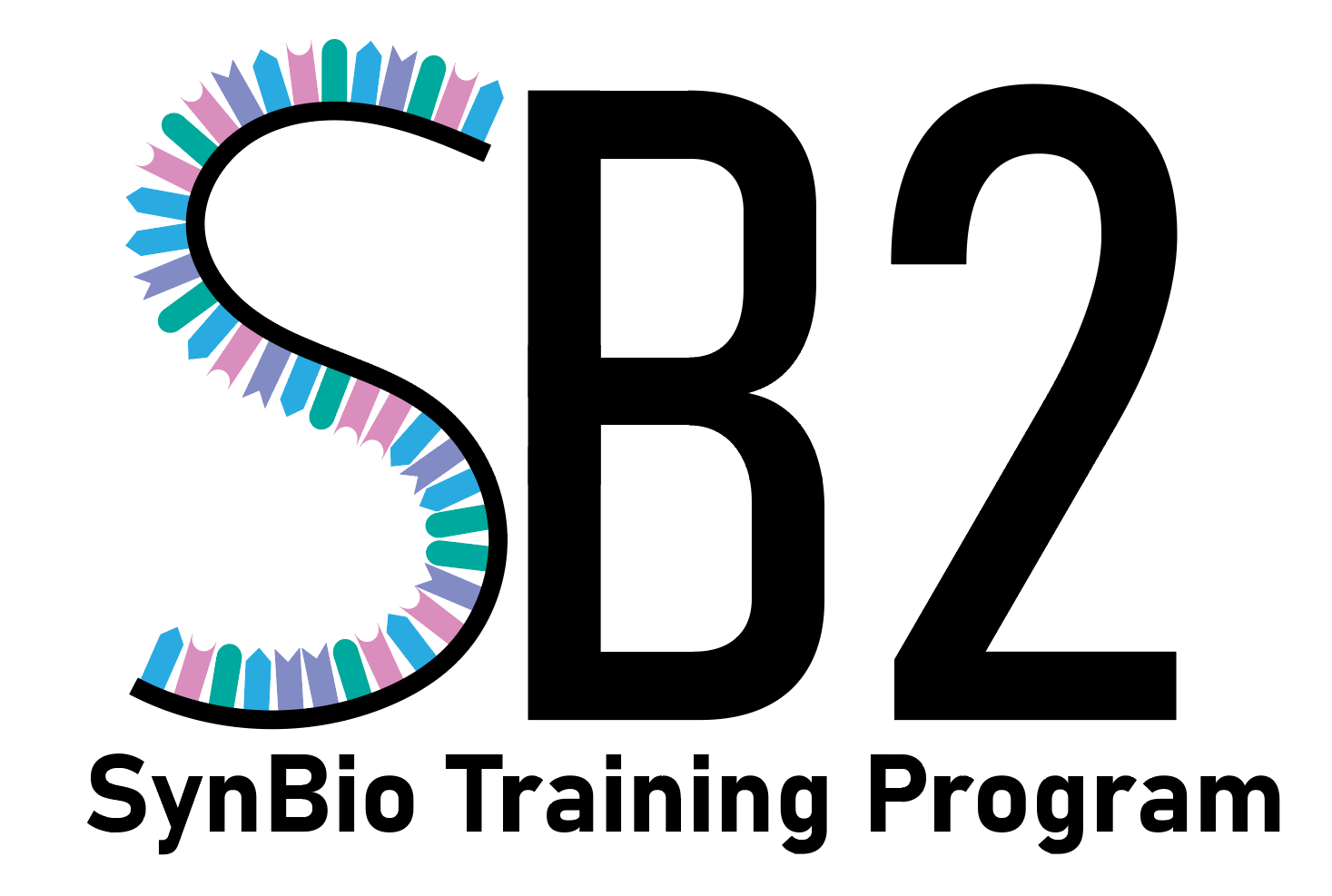Training Program in Synthetic Biology & Biotechnology (SB2)

Synthetic biology uses biological ‘building blocks’ to create fundamentally new biological systems, capabilities, and behaviors. This fast-growing discipline has the potential to revolutionize many scientific fields and industries, including biotechnology, agricultural technology, microbial ecology, cellular agriculture and plant-based meats, biomanufacturing, and medicine. Synthetic biology is a remarkable field, as it has given scientists and engineers new ways of interrogating living systems and manipulating them to create technologies.
To realize its full potential, efforts are needed to formalize the theory, practices, and standards in synthetic biology so that future Ph.D. graduates can develop new synthetic biological methods and implement them to address a broad range of scientific problems. Synthetic biology is, by nature, an interdisciplinary enterprise, forged between biology, engineering, chemistry, and physics. As such, it also represents an ideal discipline around which to build a training paradigm that incorporates team science, interdisciplinary thinking, communication, and business understanding.
The Synthetic Biology and Biotechnology (SB2) Predoctoral Training Program, the first-its-kind training program in synthetic biology, is motivated by three central challenges:
- There is an unmet need to define and implement a holistic, sustainable synthetic biology curriculum to train the next generation of synthetic biologists. Synthetic biology – now over two decades old – has undergone considerable growth in scope and output, and this field has attracted a large community of students and researchers interested in using ‘bottom-up’ approaches to study biological systems and manipulate them for practical and societal benefit. Up until recently, no one had defined and established a core curriculum to meet these demands, capture the essential knowledge, and leverage interdisciplinary practices for synthetic biology. Formalizing a core curriculum will help promote field-wide standards that support transferability, reproducibility, and robustness of synthetic biology technologies.
- The potential of synthetic biology to provide groundbreaking solutions to a broad array of challenges, from human health to the environment, relies on developing skilled researchers for both academia and industry who are adept at identifying new scientific areas and applications for synthetic biology. Synthetic biology is already having a significant impact in many industries, and now there are numerous, FDA-approved cell and gene therapies. Skilled scientists and engineers, who can develop, improve, and accelerate synthetic biology technologies, are needed to drive these therapies and innovations; simultaneously, academic researchers in this field must have a clear understanding of the process of translating and commercializing technologies they are developing.
- The interdisciplinary nature of synthetic biology research demands significant professional and operational skills – such as communication, teamwork, and leadership – which are not robustly supported by most academic training programs. Synthetic biologists must be able to effectively communicate and integrate disparate information across fields, operate in team-based environments, and strive for robust and reproducible research in their continual efforts to make biology more predictive and engineerable.
Our mission is to create and maintain the preeminent synthetic biology training program that will produce the next generation of researchers capable of rigorously and creatively applying synthetic biology principles and approaches to a broad range of scientific problems. Our trainees will gain the knowledge and tools to predictively engineer biological systems and efficiently translate their breakthroughs from the academic environment to the ‘real world,’ thereby preparing them for the broad range of exciting careers open to scientists today. In addition to building a field-defining synthetic biology curriculum that includes technical training, mastery of computational and data analysis methods, and critical thinking skills, we will provide robust training in the professional development skills required for success in this highly interdisciplinary field, as well as unique exposure into the biotechnology sector that is already being transformed by this field.
This NIH T32 training program is currently supported by T32GM154655 and was previously supported by T32GM130546.
